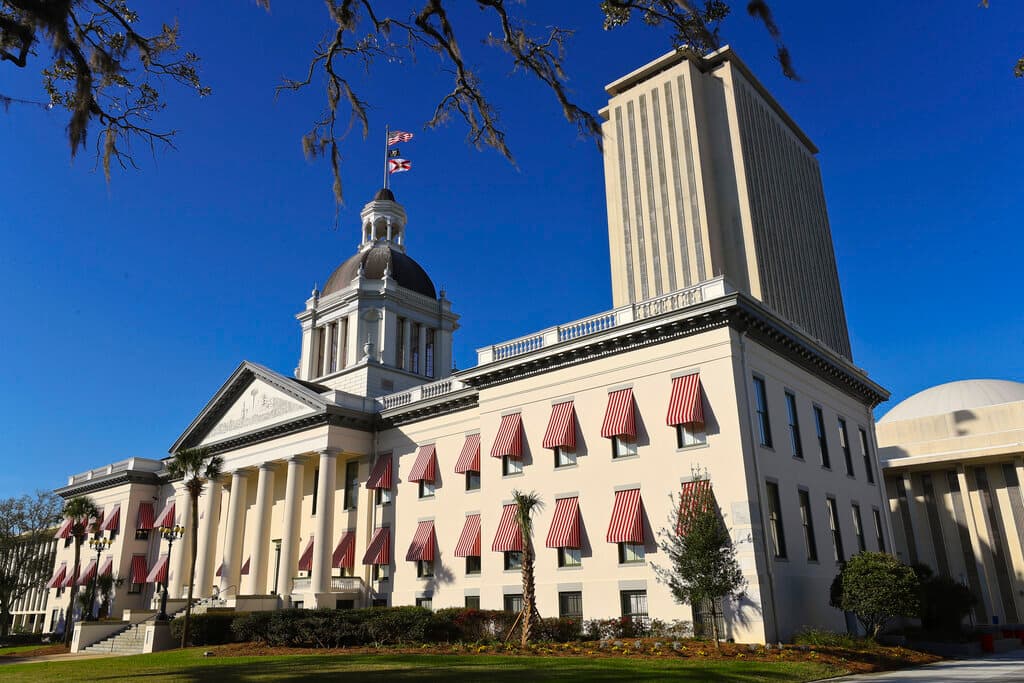Florida Bill Seen as ‘Unconstitutional Effort To Seek Revenge’ Against Political Bloggers
Political bloggers would be required to register with the state government under a bill proposed at Tallahassee.

In Florida’s ongoing push to rewrite the rules around freedom of speech and the press, a new bill — motivated by “revenge,” one freelance journalist says — would require political bloggers to register with the state government.
The bill, S.B. 1316, was introduced by a Florida state senator, Jason Brodeur, and its restrictions would apply to any “blogger” writing about “the Governor, the Lieutenant Governor, a Cabinet officer, or any member of the Legislature.”
One well-known Florida blogger, Peter Schorsch of Florida Politics — famous for breaking story of the FBI raid on Mar-a-Lago — told the Sun that the law is “an unconstitutional effort to seek revenge.”
In an article on Mr. Schorsch’s big scoop, the Washington Post described him as someone who “essentially gave the news away, asking bigger national publications to seize his headline and build out their own stories.”
“I think Senator Brodeur, with his circle of controversial political associates, is displeased with the unending negative coverage he and his cohorts have received from traditional media and bloggers,” Mr. Schorsch said.
In the context of the bill, “blogger” means any person that “submits a blog post which is subsequently published,” and “blog” refers to any “website or webpage that hosts any blogger and is frequently updated with opinion, commentary, or business content.”
From the text of the bill it’s not clear if these definitions would include social media sites and those who post on them. Mr. Brodeur did not immediately respond to a request for comment.
The bill would require any blogger who “receives, or will receive, compensation” for a post mentioning an elected official to register with the Office of Legislative Services or the governor’s Commission on Ethics within five days of their first post mentioning an elected official.
If a piece mentions an elected member of the state’s legislative or executive branch, the blogger is required to register with the Office of Legislative Services or the Commission on Ethics, respectively.
After registering, a blogger would then need to “file monthly reports on the 10th day following the end of each calendar month” unless he or she stops blogging.
These reports would include the amount of any compensation received for blogging, details concerning the time a post was made, and whether there will be more posts.
Bloggers who fail to register with the relevant state authorities would be punished with a $25 fine for every day the blogger fails to file a report, up to $2,500 per post.
The bill also explicitly says that a “newspaper or other similar publication” would not need to follow the new laws, although “similar publication” is not defined.
As for the practical implications of the bill, Mr. Schorsch said that his site would “not be impacted” aside from the legal costs needed “to see a court rules this legislation a violation of the First Amendment.”
“As for how the staff of Florida Politics operates, Senator Brodeur’s legislation is behind-the-curve and fails to grasp the current media landscape,” Mr. Schorsch said.
This bill was put forward a week after two bills were introduced to the Florida legislature to challenge the landmark New York Times v. Sullivan Supreme Court ruling.
These measures, introduced by an ally of Governor DeSantis who is a state representative, Robert “Alex” Andrade, are explicitly aimed at challenging federal law and allowing states to rewrite their defamation, libel, and slander laws.
The proposed changes would broaden the meaning of defamation and classify some statements, like allegations of discrimination based on “race, sex, sexual orientation, or gender identity,” as defamation per se.

